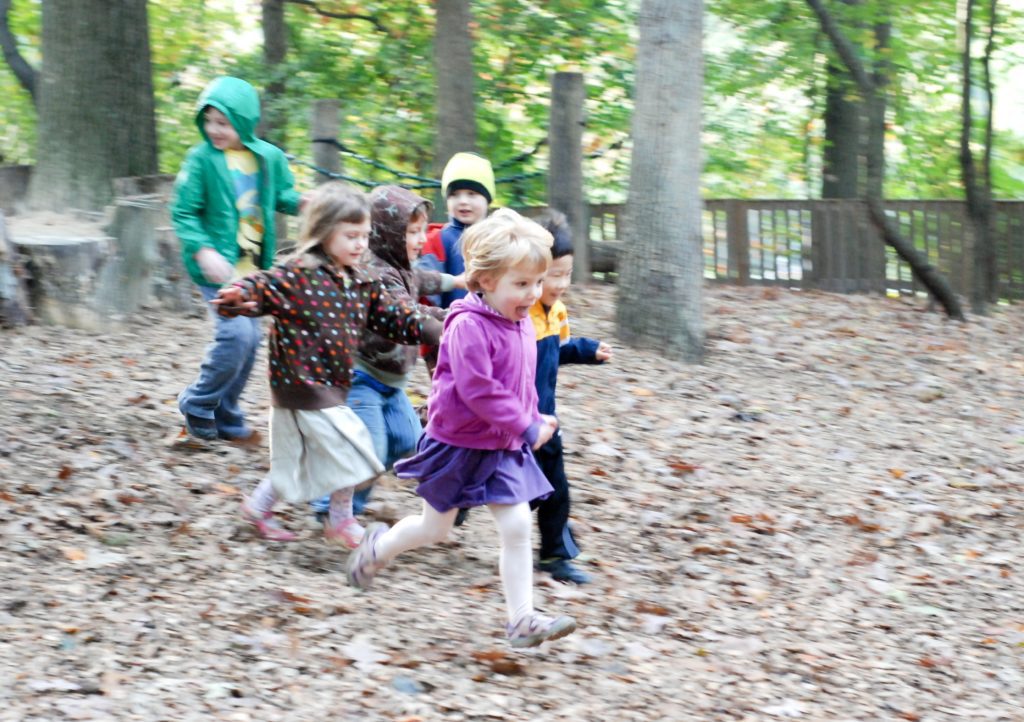
If I could offer my children only one thing in their entire lives it would be the social and emotional skills to know themselves and relate well to others. I know my kids won’t just learn this from a flip chart or a computer game — we each have to work those skills out for ourselves, the earlier the better. For children, this happens through free play, with the support of adults who can facilitate self-awareness and respectful relationships.
So when my husband and I set out to find a preschool, these elements were at the top of our list (along with a warm environment and outdoor space). When we found Acorn Hill Waldorf Kindergarten & Nursery, we knew it was special.
You don’t have to take my word for it. Go see for yourself — Acorn Hill is holding a free “mini-morning” this Saturday, June 8 at 9:30am. It’s an event for the whole family — you will be invited into a classroom to play with toys, bake rolls, sing songs and get a feel for what the school has to offer. You will also spend time outside on the playground, where you can speak with the teachers and ask questions.
3 Reasons we chose and love Acorn Hill
1. Cultivating self-awareness and empathy
The Waldorf approach, as you can read on Acorn Hill’s website, aims to “encourage the holistic and integrated development of each human being’s unique creative potential.” I’ll admit, that sounded like an idealistic dream, until I realized that at Acorn Hill, they really put it into practice. I’ve now had the joy of participating in parent-infant and parent-child classes and watching our children attend school on their own. And I have marveled at how each moment of the school day is intentional. Teachers are thoughtful about how they respond to each child. They use language that respects individuals and encourages self-awareness. When two kids began to fight, one teacher would say “I can see you’re frustrated that he wants to play with that toy,” or “It looks like you both want a turn with the bear,”. This language helps children identify the problem and the emotion and gives them a chance to work it through. I grew as a parent from watching these types of interactions as I participated in parent-child classes.
2. Play-based
Acorn Hill teachers like to say, “Play is the serious work of a child”. This conscious attention to the importance of play is another reason we chose the school. Teachers set up wonderful activities to offer the children every day, like baking rolls (and eating them), painting with watercolors, and more; but children are free to decide what they want to spend their time doing. Some of the options link to practical life, like washing the cloth napkins in a basin, but teachers also encourage creativity and imagination. One day I watched two boys climb into a wooden cradle and call it a boat. The teacher quickly handed them each a plank of wood “Here’s a paddle” she said, and the imaginative play took off. To support this creative play, classrooms are screen- and technology-free.
3. Outdoor time, and plenty of it
I learned early on that my kids behave better when they spend time outside. It turns out that lots of research backs up the benefits of playing outdoors, especially in the dirt and among the trees. When I’m stressed out, a walk always helps, so it makes sense that that holds true for kids too. Research also shows that adults are more active if they spent time outdoors in all weather earlier in life. Fortunately, that fits well with Acorn Hill’s philosophy.
When the weather was nice, my kids played all morning and even ate snack in the school’s idyllic forested playground. In rain and snow, classes spent a shorter time outdoors. Only once this year the school canceled outdoor time (due to high winds). Staff help kids get in and out of snow pants and rain gear to make sure there is time to explore nature in all its seasons. It’s not just outside though; playgrounds are set up to inspire creative play without overly prescriptive equipment. Play areas have stumps and ropes to climb on, sand to dig in and shovels and baking pans to create with.
4. (Bonus) Storytelling with puppets
It may be hard to imagine a group of 3-years-old children sitting in silent awe for a solid 15 minutes. At Acorn Hill, our kids adore puppet plays, stories often told in song, that offer simple lessons about the natural world. These creative tales have clearly improved our kids’ ability to tell and invent imaginative stories, as well as their memory and ability focus.
These are just some of the reasons we have loved Acorn Hill. If it sounds too good to be true, go see you for yourself. Join the mini-morning this Saturday, June 8 from 9:30-10:45 am and see if Acorn Hill is right for your family, you’ll be glad you did!
You can apply to Acorn Hill Waldorf Kindergarten & Nursery on their website.


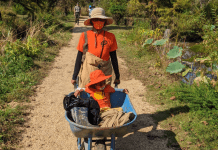

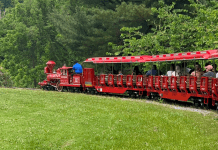



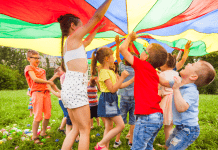

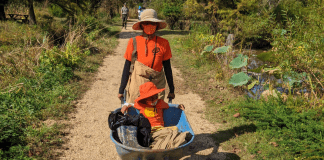




Waldorf is so dreamy. Is it true that Waldorf does not do formal reading instruction until 2nd grade (or all teeth in)? My late reader would have appreciated that.
That’s a great question. Yes at Acorn Hill they don’t do any formal reading instruction until after Kindergarten, that seem to be an advantage. A lot of research suggest that as long as kids are in environments with free-play supported by engaged adults adults there are no benefits to pushing reading, and it may crowd out other important learning. I’d point you to these links to read more about it…
https://acornhill.org/wp-content/uploads/2015/01/Reading_Instruction_in_Kindergarten.pdf
https://www.nytimes.com/2015/05/17/opinion/sunday/let-the-kids-learn-through-play.html
Comments are closed.